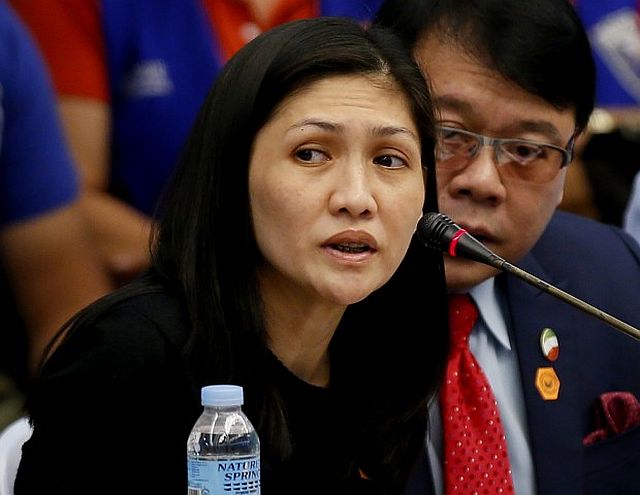
Maia S. Deguito, Rizal Commercial Banking Corporation (RCBC) branch manager, finds herself at the center of the Bangladesh heist controversy. (INQUIRER)
Cebu’s banking and business sectors are protesting against the “dirty money haven” tag given to the Philippines following the Bangladesh heist.
Philip Tan, past president of the Mandaue Chamber of Commerce and Industry (MCCI), said the Philippines is expected to strengthen and tighten security measures in allowing foreign money enter the financial system.
This would make it more difficult for foreign investors to pour money into Philippine banks and discourage them from making investments in the Philippines, he said.
“The investors, especially if they are not previously known, will have a harder time. While not impossible for them to invest, maybe it will take longer for them because the money comes in, then it is put on hold while banks have stricter verification processes,” Tan said.
But Donato Busa, incumbent MCCI president, was confident that the label won’t stick.
“Our banking system will continue to be strong. The business sector will similarly continue to thrive. We are still confident in our system. This label, while sad and unfair, will blow over,” Busa said.
The continued investigation of the $81 million stolen by hackers from the Bangladesh central bank through the Federal Reserve Bank of New York has revealed several loopholes in the Philippine banking system, making it easier for money to be laundered in.
The money was sent via electronic transfer to Rizal Commercial Banking Corp. (RCBC) in the Philippines and quickly moved through the banking system into the casinos.
Maximo Rey Eleccion, president of the Cebu Bankers’ Club (CBC), assured that the Philippine banking system continues to be secure.
He also assured that remittances from overseas Filipinos have continued amid fears that higher charges would be imposed by foreign banks on money bound for the Philippines.
“We have received no bad feedback and no client complaints so far,” Eleccion said.
If there are any difficulties, he said the banks would have known from their clients because they would be reporting the delays.
Busa of MCCI said blame for the entry of Bangladesh money in the country should be put on “corrupt officials rather than on the (banking) system.”
“We are told that we have one of the best AMLA (Anti-Money Laundering Act) in the world. It is very air tight. I think this is true. It’s just that we may have handlers, whether in the bank or in politics, that can be corrupted,” he said.
But he also said one of the few gray areas in the AMLA is that casinos are not being monitored.
“The thing is, you can buy the chips, hold onto them for maybe an hour, and then have them exchanged for cash, and the money is already laundered,” he said.
Tan, for his part, said the RCBC has been put “in a bad light” because of the issue.
“There is something called KYC or know your clients. It was a mistake by the bank, not the system. They should have properly verified the client before allowing the transaction to take place,” he said.